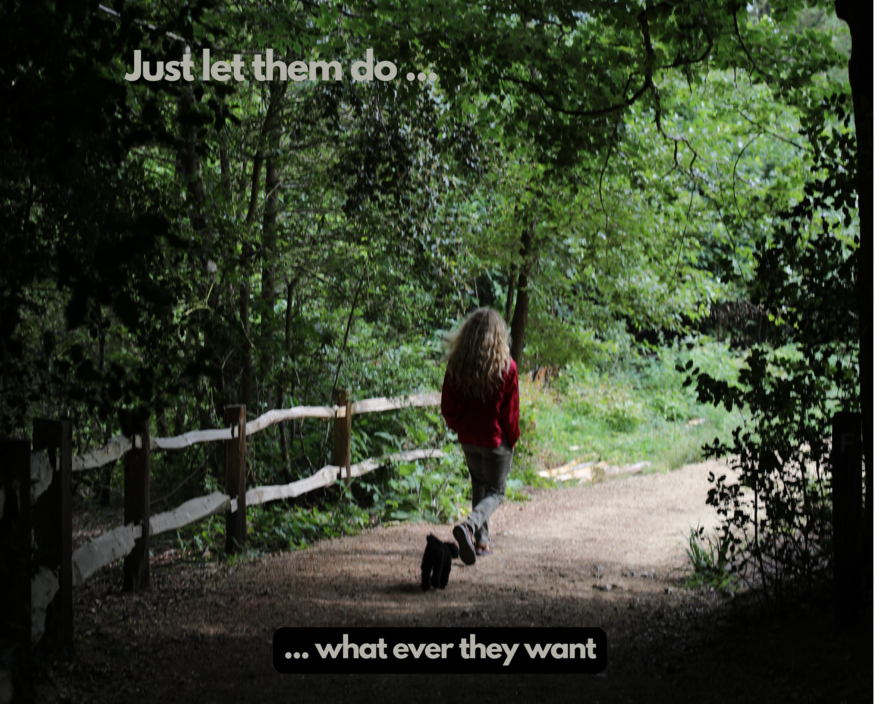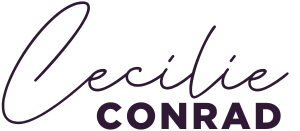
Are you familiar with Learn Nothing Day?
On the 24th of July each year, we celebrate Learn Nothing Day. It is a beautiful tradition within the unschooling community. Sandra Dodd invented Learn Nothing Day as a simple challenge for people to understand learning happens all the time.
People are obsessed with forcing children to learn and controlling their learning. The result is children who think they hate learning, do not trust adults, and try to avoid things or get them over with as fast as possible to arrive at the small chunks of freedom they can find between the demands. I am no saint myself, I was in this matrix, and I am forever grateful for the people who taught me about the basic ideas of unschooling.
Even with these wise women around me (Dawn Hoff, Luna Maj Vestergaard), it took TIME to understand what was going on and how it could be instead. Now, 17 years later, I find myself in a position outside of most people's reality, having a very different perspective.
A shocking diagnosis!
Just a few days ago, I learned something shocking. Truly chocking. I am still processing it, and it may be premature to share it at this point. I might even reveal myself as ignorant.
But listen then to my ignorance. Or my perspective.
Someone told me their child had PDA. This means Pathological Demand Aversion. As I had never heard of this diagnosis before, I asked for an explanation: what is it? As they explained, I just had to come out and say it: “I have that! My children all have that. My husband is an extreme case of that. Except leave out the P for Pathological”.
Now, everyone can have a level of avoiding demands. Still, people diagnosed with PDA have it more and experience anxiety when demands are perceived and will go to extremes to avoid them. These are the symptoms. They are not complying, becoming very uncomfortable when pushed.
I have that.
I totally have that.
My kids have that. Totally.
All of that. Including the P, if that is to be defined as "pathological."
But listen now. Please do. Keep reading. Spend ten minutes thinking about this. It circles back to Learn Nothing Day; I promise - as life will always line up perfect options for us, perfect dots to connect, ideal learning opportunities, and spaces for growth and joy.
Pathological Demand Avoidance - What is that now?
I looked it up, the diagnosis, as it is seriously making my jaw permanently rest on my chest. HOW is this a diagnosis?!
Only in the context where it is perceived as a PATHOLOGICAL problem when children do not comply with the compulsory demands made by adults around them.
Examples in the different autism pages I read yesterday were children not doing schoolwork even though it was easy for them to do it and children who would refuse to take a shower.
I have to ask: WHY OH WHY do we perceive it as normal development for children to comply to do things that MAKE NO SENSE for them to do? Why do we not embrace and enjoy and praise people of all ages, who will question orders and demands, who will need inner motivation, true reasons to do things, who want to live a meaningful and joyful life?!
The totality of this diagnosis is adults rigidly holding on to a perspective where they need to be in charge and have children who comply and obey, even to things that seem wrong to them, even to things that feel unnecessary, stupid, and meaningless.
There is no way I will ever get how this makes any sense. At all.
Anxiety is a real problem of suffering, but it does not arise from within the child stamped with these three letters; it stems from adults rigidly holding on to their version of reality, not wanting to change or learn, and seriously pushing their children to a point where they experience anxiety, conflict, fear.
So, here is my proposition.
Give up.
Give in.
Let go of the control.
Leave your children be.
It is not in the ICD or the DSM
I was relieved when I realized the diagnosis exists, but at least it is not accepted in the big American Handbook of Psychiatry nor the one made by WHO. So there are no official drugs for it.
Yet.
Let us remove P for Pathological.
Unschooling is very much about learning to let go of exactly what creates situations where children get this kind of diagnosis. PDA. Let us remove the P; it is not pathological to not obey, to think for yourself, to feel within your rooted soul whether something is right for you or not, and to want to do your own thing at your own time. It is INDEPENDENCE and INTEGRITY. We like that.
Let us remove D for Demands
Then let’s move on and remove the D. Demands. Why do we demand things from our kids?! Who are we, really, to demand? We are not kings nor Gods; we are mere caregivers, parents, and servants of a universe of love. Hopefully, we were loved when we were young and supported, trusted, and helped into this life in a community of parents, siblings, extended family, and community - the job is not to DEMAND; the job is to support and witness.
If we have a trusting and loving relationship with our children, they will listen when you explain why you find something important. If you have that relationship, you, the adult, will listen if the children explain why the could-have-been-demand does not resonate with them.
Kids are smart. They are.
And it might be the most important life skill they will ever evolve: To listen to their own feel for things and question what is going on around them so they can make up their own mind. That is to THINK. And to be authentic.
How about removing the D for Demand and instead installing respect for each other, proposing to children, sharing perspectives and experiences, and BE with them? There is no need to hold on to all of the mainstream demands for childhood. Instead, we could enjoy any “no” from our children as an opportunity to question a thing we always did or thought so that we can grow.
Let A for avoidance evaporate.
Finally, we get to A for aversion. If we have already removed the idea of Pathological, and Demands, replacing them with Personal Freedom and Loving, Respectful Relation, there is nothing to avoid. Still, it is relevant to think about the concept of aversion.
In my language, an aversion is something you strongly dislike. Very strongly. We use the word not to describe the quality of an action but as an emotional response.
My core family, all of us, and my mother, too, have that emotion when presented with demands. We do not become aggressive, but we do leave the room. Or the context. Or the country! This is not pathological behavior; this is staying true to who we are, wondering whether we want to comply with the demand. Compliance with something is a trade-off and might not be worth it. In some (a lot of) cases, the demand is too stupid, and we have to simply leave.
I see no problem.
There is nothing wrong with avoiding things we do not feel are right for us. Really. There is a lot wrong with NOT doing it. Look at world history and observe just how bad it can go.
Sandra Dodd and Learn Nothing Day
Circling back to Lean Nothing Day, we have to celebrate Sandra Dodd and the thousands of hours she has put into discussing unschooling with people all over the planet and how she has preserved so many conversations in written form, helped, supported, and inspired. She invented Learn Nothing Day as a simple tool for skeptical people to realize learning happens all the time; it cannot be avoided.
Even if you let go.
Here is the challenge. On the 24th of July, from midnight to midnight, you do your best to avoid learning ANYTHING. If you fail, you share it on social media or Sandra's website. And with your friends. While you are at it, you can send her your congratulations as it is her birthday.
Let go of diagnosing, controlling, and judging children
And maybe you then would join me in letting go of the idea children are pathological when they refuse to comply with a reality made up by someone else. I see that perspective as being rather healthy.
I do acknowledge that it can unfold more strongly for some than for others. There is probably an anarchist gene going on; some people need their freedom just as much as they need oxygen and water.
These people might be the ones to walk in front, changing the world from the madness going on right now and back into something that makes sense and has a future.
We could go there (and discuss how to save the world by staying true to who we are). Still, I will only take a sneak peek, poking a small hole in the box: If we are to save our future, we do not need people who blindly comply with demands when the demands make no sense and feel wrong. We need people who can feel themselves, be authentic to their inner life, and work wholeheartedly and passionately with the things they do. This is what they need. And this is what the world needs.
Launching a new podcast - Ladies Fixing the world
My thoughts here are somewhat radical, and I might lose a friend or two over them. I am therefore excited to at the same time announce my new podcast: “Da Ladies Fixing the World,” a conversation-style podcast to be released once a month where I talk to 3 wise and fellow radical women about - the world. I genuinely believe women who bring up children outside of the matrix HAVE to question everything and come up with insightful perspectives on the autopilot-style mainstream lifestyle - and this will eventually become a big part of how we can fix the world.
On the podcast, I talk to Luna Maj Vestergaard, one of the central figures of unschooling in my home country and my personal friend, a fierce and fearless mother of four traveling the world and unschooling, very good at enjoying life and growing all the time. Sara Beale, an Australian radical Unschooler, joins us. We all met in Grenada in 2019 at the World School Summit. Sarah has become a big superstar of radical mothering; she is a friend of mine, the kind of woman who makes me feel safe and almost normal, loving and reasonable and radical in the perfect mix. Last but not least, I have Carli Flawer on the team, a Spanish mother from Tenerife, based out of a van with her husband and two children. They have been traveling for five years just like we have, and Carli has this soft and yet strong power going on, always ready to help and share and learn, always faithful to what she sees, and never letting go of her perspective to please or comply, just making sure life is a loving adventure. These women are amazing and have great perspectives, so we decided to record a monthly conversation to share with everyone else.
To launch in party mode, we release the first one on Learn Nothing Day, a day to celebrate like New Year's Eve or Christmas, to remember the essential strategy of questioning everything. And fearlessly say what we mean, what we find true.
Please bombard me with your questions so we can keep the conversation going.
Oh, how I could go on. Instead, I will challenge the ones who did read through the whole thing here to ask questions: What perspectives do you need me to unfold? What do you think about demands for kids? Where do we need to let go more, and where do we need to hold on? Is PDA really a thing, or could all symptoms (=all suffering) be avoided with a perspective change by the surrounding adults? Where does responsibility fit into this rampage? Are you ready to let go? What would happen if you did? What are we all afraid of? And more: Hit me with questions, and I shall see if there is another morning with coffee and dog walkers outside my van, where I can sit down and write a stream of consciousness from outside the box.
Love and light

Cecilie Conrad

Comments